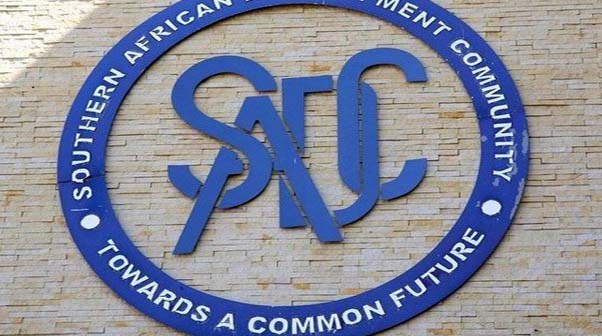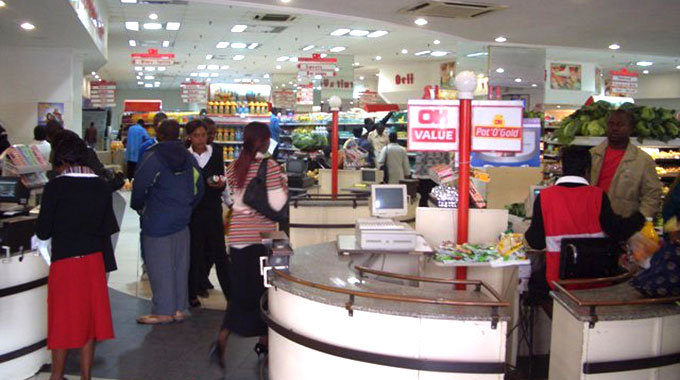Universal health coverage tops…as SADC Parly Forum Plenary meets

Moses Magadza Correspondent
The 46th Plenary Assembly Session of the SADC Parliamentary Forum ended recently in Swakopmund, Namibia, with a call for SADC member states to work towards universal healthcare.
Namibian Vice President Nangolo Mbumba officially opened the three-day plenary. He challenged the SADC region’s Members of Parliament to use their mandate as elected representatives of their people, to ensure good health for all.
He explained that UHC was concerned about ensuring that all people have access to healthcare and that there was no financial risk or hardship.
“It is our firm belief and conviction that we can only eliminate malaria in SADC within the context of UHC. We can only end TB by 2035 within the context of UHC. We can only end AIDS by 2030 within the context of UHC and reduce maternal and infant mortality within the context of UHC,” he said.
He commended the SADC PF for promoting parliamentary engagement on issues of Sexual and Reproductive Health Rights and HIV which can culminate in UHC and facilitate sustainable human and social development in the SADC region.
He said the theme of UHC was linked to the attainment of targets of Goal No. 3 of Sustainable Development Goals on health which he said was high on the global agenda and agendas of many SADC countries.
“It is certainly these and many other achievements which underlie the proposal for the transformation of the SADC Parliamentary Forum into a SADC Parliament,” the Namibian vice president said.
He urged the SADC Parliamentary Forum to continue “with lobby initiatives in view of achieving transformation to promote parliamentary excellence for the benefit of the SADC region as a whole”.
Mbumba noted that the SADC region was losing potential revenue as a result of exporting unprocessed raw materials and called on MPs to support industrial development initiatives.
He said SADC PF was firmly on track and operating in line with its founding principles.
“SADC Parliamentary Forum has remained true to its constitutive mandate, namely that of serving as a regional consultative forum for parliamentarians to deliberate on matters of regional interest. This is an important contribution to the promotion of representative and participatory democracy.”
He said election observer missions organised under the umbrella of the forum were important in supporting electoral integrity in the region.
“The forum’s commitment to gender equality and women advancement is also worth noting,” he added.
Speaking at the same occasion, Honourable Veronica Nataniel Macamo Dlhovo, president of SADC PF and Speaker of the National Assembly of Mozambique, said the forum was, indeed, advancing its mandate, and had over the years developed normative standards in the form of model laws.
“This is an important legislative and policy contribution to SADC’s integration. We have adopted model laws on issues of regional importance such HIV and AIDS, child marriage and elections,” she said.
She expressed optimism that the domestication of norms and standards contained in these instruments would strengthen democracy and improve the well-being of citizens of SADC.
“Regional and international protocols and other instruments end up gathering dust and their aspirations are hardly realised. The SADC Parliamentary Forum, therefore, has established a Regional Model Law Oversight Committee to monitor the domestication of model laws and related regional instruments developed by the forum,” she said.
Honourable Nkhensani Kate Bilankulu from South Africa, deputy chairperson of the Regional Women’s Parliamentary Caucus (RWPC), also spoke at the official opening.
She said the UHC agenda was timely because it advanced SADC PF’s Model Law on HIV in Southern Africa of 2008 as well as the Model Law on Sexual Reproductive Health and Rights of 2013.
“It is comforting to note that the SADC Parliamentary Forum’s Sexual, Reproductive Health and Rights (SRHR) Programme is advocating comprehensive sexual and reproductive health services for all without discrimination. UHC should prioritise the health and rights of women, girls and other vulnerable people,” she said.
Bilankulu called for free healthcare, saying lack of financial resources thwarts access to health for all, but especially for women and girls.
“Financial and other resources which more often determine women and girls’ access to healthcare should be addressed. The health and rights of women and girls can only be achieved through the promotion of free public healthcare,” she said.
She said UHC should address socially constructed gender roles and gender determinants of health which compromise the provision and quality of public health- care.
“Gender-based discrimination, harmful practices and the lack of autonomy which women and transgender people often suffer over their own bodies present a serious risk for the attainment of UHC. We, therefore, need gender lens and gender-disaggregated data to ensure that healthcare needs of women and girls are specially targeted.”
On women in politics, she called on member states to take practical steps to facilitate the active participation of women.
“We have moved one step forward and we are regrettably moving two steps backward. We have witnessed a decrease, instead of an increase in women representation even in some of the member states where we were expecting improvement,” she said.
She attributed the poor representation of women in some national parliaments to bad electoral systems.
“It is a fact that the type of electoral system is a contributing factor to increasing or decreasing the representation of women, and this challenge has unfortunately not been addressed. The ‘first past the post’ electoral system compared to proportional representation and the purposeful inclusion of women quotas inhibits women representation in political and decision-making positions,” she said.
SADC PF secretary-general Ms Boemo Sekgoma said the 46th plenary drew the participation of 13 parliaments.
Observers included Mrs Grace Kibunja, Advocacy Unit manager of the African Population and Health Research Centre; Sifisosami Dube, head of governance and SRHR at Gender Links; and members of the diplomatic corps of missions accredited to the Republic of Namibia.









Comments